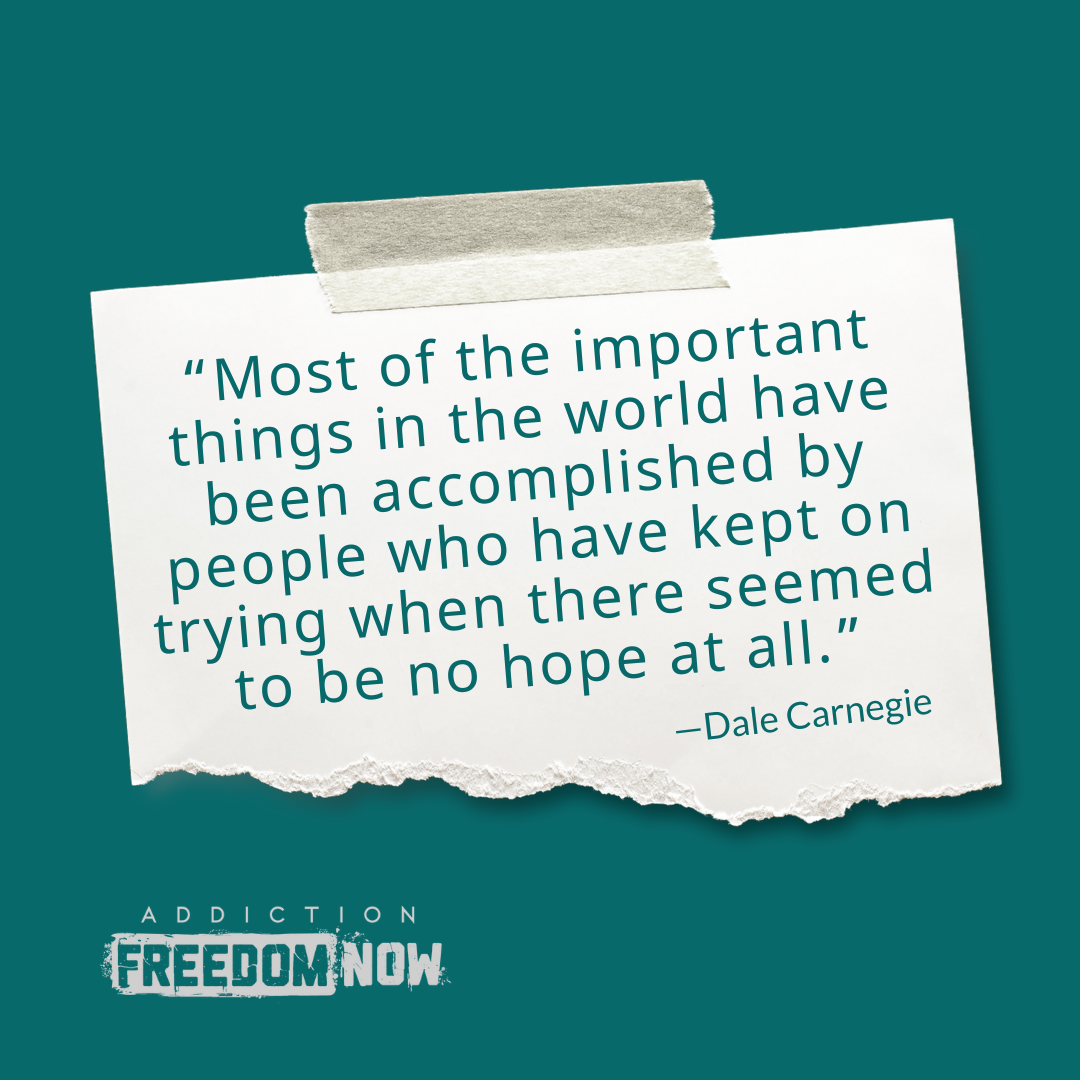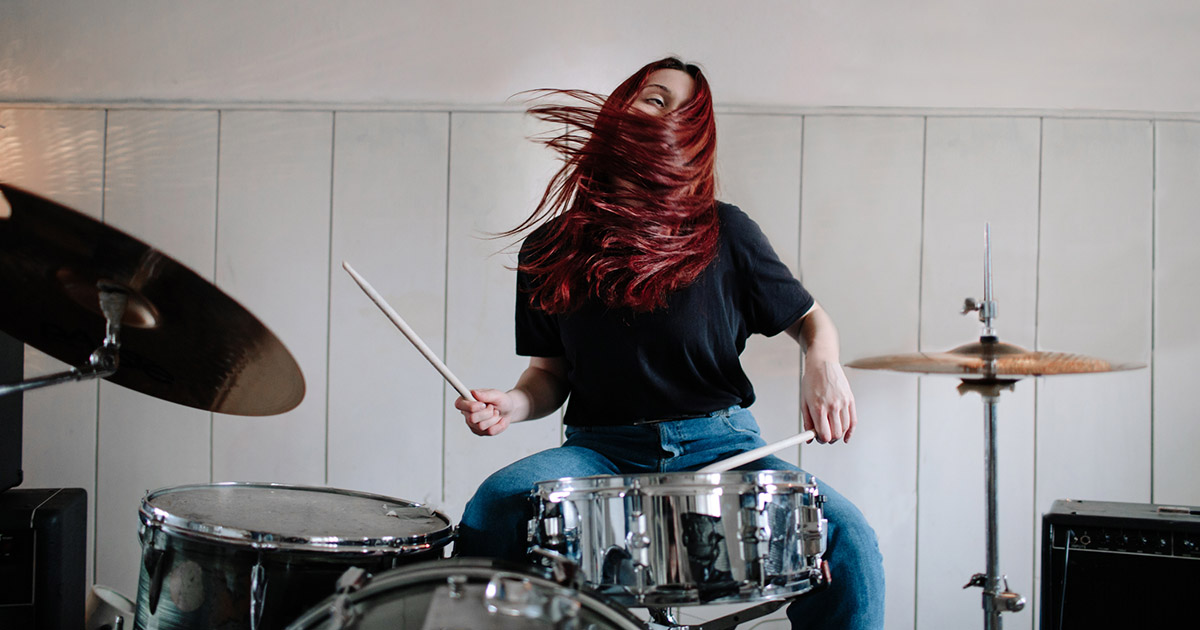In the earliest days of your recovery from drug or alcohol dependency, you might run into a roadblock you hadn’t anticipated. It’s boring. Or, at least, it can certainly feel that way, if you’ve become used to relying on drugs or alcohol to pass the time.
Even when you’re at rock bottom during active addiction, you’d be hard-pressed to find someone who would consider this experience “boring.” It’s certainly not an enjoyable time by any means. Addiction keeps you occupied, even if it’s keeping you miserable, in the process.
Coming out of regular substance use, you may be thrown off-guard by the feeling of being bored.[1]Melemis S. M. (2015). Relapse Prevention and the Five Rules of Recovery. The Yale journal of biology and medicine, 88(3), 325–332. During your addiction, it was effortless to keep yourself distracted – you didn’t even need to consider what activity you should partake in to stay entertained. Now, however, you’re thrust back into a position where you must sit down and consider – how am I going to spend free time?
Is Being Sober Boring?
For those who are new to recovery, boredom can quickly begin to feel like the hardest part of sobriety. At least, it’s certainly on the list.
As tempting as it is to exclaim, “I hate being sober,” it’s entirely possible to overcome the sense of boredom. At the end of the day, all it takes is figuring out an activity that you enjoy and would like to devote your free time to. Or, you can even start reconnecting with your friends or family members, using your extra time to build and strengthen these bonds.
But let’s take a step back for a moment. To combat your boredom, it’s a good idea to have a sense of where it’s coming from.
You’re Under the Impression That You Need Drugs or Alcohol to Enjoy Yourself
After you’ve spent so long relying on drugs or alcohol to do certain activities, it can start to feel like substance use is a necessity.
As an example, maybe you enjoy going out to dance and socialize. This can be a healthy way to spend your free time, and drugs or alcohol definitely aren’t a prerequisite. However, in the past, maybe you’ve never gone out dancing without drinking, as well. This can give you the false impression that if you’re not able to drink, you won’t be able to go out and have a good time. Of course, this isn’t true at all.
You’re So Used to Rapid, At-Will Mood Changes
When you drink alcohol or do drugs, it’s quick and easy to manipulate your own mood. If you’re feeling bored, upset, or angry, you know for a fact that drinking will take this feeling and turn it into something completely different – even if the new emotion is less than positive.[2]Menon, J., & Kandasamy, A. (2018). Relapse prevention. Indian journal of psychiatry, 60(Suppl 4), S473–S478. https://doi.org/10.4103/psychiatry.IndianJPsychiatry_36_18
If you indulge in some booze, you’re already familiar with the rush or sense of euphoria this will provide to you. You know that alcohol can help quiet your mind and stop you from focusing on thoughts that you’d prefer to avoid. While drugs or alcohol give you a fast and reliable way to achieve this effect, you’ll need to find a new method after you’ve decided to go sober.
It Can Be Unpleasant Getting to Know Yourself Again

When you’re constantly under the influence of drugs or alcohol, this can drastically alter who you are as a person, including how you personally see yourself.[3]Sinha R. (2008). Chronic stress, drug use, and vulnerability to addiction. Annals of the New York Academy of Sciences, 1141, 105–130. https://doi.org/10.1196/annals.1441.030 After you’ve spent so long in active addiction, you may even have started to forget the person that you actually are.
Early along in your recovery journey, getting to know yourself again can be a terrifying experience. Initially, you may be disheartened by the person you’re getting to know. You might think that your true self is uninteresting and that you need drugs or alcohol to be a fun person again.
But chances are, you’re not as boring as you believe that you are. Try to stop beating yourself up so much. Although it can take some time to rediscover your sober personality and interests, you’ll soon realize that you’re a far more interesting person than you’ve been giving yourself credit for.
You’re Experiencing Post-Acute Withdrawal Syndrome (PAWS)
Other times, the reason you’re feeling bored while sober is a bit more complex. After you’ve been relying on an addictive substance for an extended period of time, it’s possible for you to develop a condition known as post-acute withdrawal syndrome, or PAWS.
Withdrawal symptoms can be incredibly difficult to deal with. On the bright side, however, these symptoms usually don’t last for a long amount of time – generally, withdrawals will begin to fade after two weeks. With PAWS, on the other hand, withdrawal symptoms can last for a far longer amount of time. Some individuals will even undergo symptoms of PAWS up to two years after they went sober.[4]Heilig, M., Egli, M., Crabbe, J. C., & Becker, H. C. (2010). Acute withdrawal, protracted abstinence and negative affect in alcoholism: are they linked?. Addiction biology, 15(2), 169–184. … Continue reading
Although everyone deals with PAWS differently, the symptoms that the disorder centers around tend to be psychological or mood-related. This means that even if you’ve been sober for several months, you could still experience an unstable or negative mood as a byproduct of your addiction. Even if it’s tempting to consume drugs or alcohol again to bring back the positive or exciting feelings, this is counterproductive. Remember, even though PAWS can last for a while, the condition won’t be around for the rest of your life.
Learning to Cope Without Drug or Alcohol Use

Boredom is just one of the negative emotions someone might encounter during recovery. If you’re currently experiencing an emotion that demotivates you or drives you closer to relapse, this is the best time to break out your healthy coping mechanisms. These methods of coping rarely come naturally to those in recovery, however. Rather, you need to put in the effort to discover what works for you.
Without an arsenal of reliable coping mechanisms to draw from, individuals in recovery are more prone to impulsivity and sensation-seeking behaviors.[5]Christine, M.A.C., Norman, S.E. & Nancy, L.K. Coping and psychological distress for men with substance use disorders. Curr Psychol 21, 35 (2002). https://doi.org/10.1007/BF02903158 This is just one reason it’s so beneficial for those in recovery to find activities and skills that can capture their attention in times of need. Otherwise, they could become more prone to relapses or other damaging behaviors.
To stop relying on a substance, you’ll need to find a way to overcome hardship or negative emotions without drugs or alcohol. One of the many benefits of counseling or support groups in recovery is the opportunity this provides to dig deeper and uncover effective coping strategies.
Recovery Is Worth It – And Sobriety Doesn’t Need to Be Boring
Even if it doesn’t seem this way on the surface, your life is going to be far more interesting after you give up drugs or alcohol. After you’ve relied on a substance for so long, it can be easy to lose sight of what it’s like to be sober. There’s so much to look forward to, and many of these perks can help make your life more exciting to live.
Recovery Promotes Mindfulness
When you’re sober, it’s much easier to practice mindfulness and to truly live in the moment. This is how you can get the most enjoyment out of any experience.
If you have any familiarity with the world of mental health, you’ve probably heard about “mindfulness” more than once. To be mindful, the individual must keep their attention focused on the present moment. If you’re ruminating about the past or worrying about the future, then you’re not practicing mindfulness.
As you might expect, it can be difficult to be mindful when you’re under the influence of drugs or alcohol.[6]Garland, E. L., & Howard, M. O. (2018). Mindfulness-based treatment of addiction: current state of the field and envisioning the next wave of research. Addiction science & clinical practice, … Continue reading For many of us, mindfulness doesn’t come naturally. If we’re not putting in a conscious effort to be mindful and keep our focus on the present moment, the mind can quickly drift away to the past or future.
Not only do drugs or alcohol lead to a distorted sense of awareness, but they also cause us to lose control over our own minds. Without that sense of stability or control, it is extremely difficult to reign a wandering mind back in and take back ownership over our thoughts.
Blackouts and Hangovers Don’t Create an Interesting Life
You also won’t need to deal with hangovers or blackouts, which can put your life on hold and make it difficult just to remember the fun times.
When you have a hangover, you typically need to put your life on hold. Maybe the rest of your friends are getting together one morning, but you’re bedridden due to a severe hangover. When this same scenario occurs over and over again, it can damage relationships and cause the individual to feel isolated. And laying alone in bed is certainly less interesting than having a conversation or hanging out with someone you care about.
You Can Strengthen Authentic Relationships

It’s far simpler to build and maintain real, authentic relationships if your life doesn’t revolve around drug or alcohol use.
Many of the relationships we develop during active addictions are built on a foundation of drugs or alcohol. When your substance of choice is in charge of your relationships, it can be impossible to find genuine connections with others. If the only thing you share in common with the people around you is the use of a particular substance, these relationships aren’t healthy, nor will they last in the long term.
Toxic relationships based on drug or alcohol use are generally shallow and much less exciting than those built on shared interests and mutual respect.
So, What Is The Conclusion? Is Sober Borging?
Well, I can tell you that “sober” does not mean boring. After all, people choose to be sober for a reason. Being sober just gives you a new way to define fun. You have to create your own joy in life. However, the reward is well worth it: your health and happy memories to look back on by the next day.
Stay strong,
Jim
References
| ↑1 | Melemis S. M. (2015). Relapse Prevention and the Five Rules of Recovery. The Yale journal of biology and medicine, 88(3), 325–332. |
|---|---|
| ↑2 | Menon, J., & Kandasamy, A. (2018). Relapse prevention. Indian journal of psychiatry, 60(Suppl 4), S473–S478. https://doi.org/10.4103/psychiatry.IndianJPsychiatry_36_18 |
| ↑3 | Sinha R. (2008). Chronic stress, drug use, and vulnerability to addiction. Annals of the New York Academy of Sciences, 1141, 105–130. https://doi.org/10.1196/annals.1441.030 |
| ↑4 | Heilig, M., Egli, M., Crabbe, J. C., & Becker, H. C. (2010). Acute withdrawal, protracted abstinence and negative affect in alcoholism: are they linked?. Addiction biology, 15(2), 169–184. https://doi.org/10.1111/j.1369-1600.2009.00194.x |
| ↑5 | Christine, M.A.C., Norman, S.E. & Nancy, L.K. Coping and psychological distress for men with substance use disorders. Curr Psychol 21, 35 (2002). https://doi.org/10.1007/BF02903158 |
| ↑6 | Garland, E. L., & Howard, M. O. (2018). Mindfulness-based treatment of addiction: current state of the field and envisioning the next wave of research. Addiction science & clinical practice, 13(1), 14. https://doi.org/10.1186/s13722-018-0115-3 |





No Comments